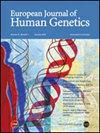申请资助的儿童基因组检测的儿科医生面临的机遇和挑战。
IF 4.6
2区 生物学
Q2 BIOCHEMISTRY & MOLECULAR BIOLOGY
引用次数: 0
摘要
对患有儿童综合症的儿童进行基因组诊断可以为治疗、管理和生殖计划提供信息。临床遗传学工作人员的短缺意味着实践正在发生变化,儿科医生可能要求进行初步基因组调查,而临床遗传学服务则保留给特别复杂的病例或检测后的遗传咨询。在澳大利亚,儿科医生可以要求资助患者进行基因组检测,但订购率不到预期的四分之一。采用理论知情的方法,我们旨在了解普通儿科医生实践的障碍和推动因素,作为开发复杂干预措施以支持临床实践的重要第一步。最大变异抽样用于邀请普通儿科医生完成半结构化访谈。采访指南使用了一个流程图,其中包含了订购资助的基因组测试所涉及的步骤,并提出了能力、机会、动机-行为(COM-B)模型和理论领域框架的组成部分。26名具有不同执业经验的普通儿科医生参与了研究。儿科医生描述了与能力、机会和动机相关的障碍。直觉策略一般儿科医生建议克服与理论策略一致的障碍,以实施实践变化。这些措施包括:利用儿科医生已经获得临床信息的途径提高认识;在基础知识的基础上提供体验式学习的机会;在一个容易到达的地方有实际资源的;与病人分享适合家庭的资讯资料。这项研究为制定战略路线图提供了证据,以有效地支持普通儿科医生将基因组学纳入其实践,并最终提供更快、更公平的基因组医学。本文章由计算机程序翻译,如有差异,请以英文原文为准。
Opportunities and challenges for paediatricians requesting funded genomic tests for children
Genomic diagnosis for children with childhood syndromes can inform treatment, management and reproductive planning. Shortages in the clinical genetics workforce mean that practices are changing, with paediatricians likely requesting initial genomic investigations and clinical genetics services reserved for particularly complex cases or post-test genetic counselling. In Australia, paediatricians can request funded genomic testing for patients, yet ordering rates are less than a quarter predicted. Using a theory-informed approach, we aimed to understand barriers and enablers to general paediatricians’ practice as the essential first step in developing complex interventions to support clinical practice. Maximum variation sampling was used to invite general paediatricians to complete a semi-structured interview. The interview guide used a process map of the steps involved in ordering funded genomic tests, with questions addressing the components of the Capability, Opportunity, Motivation – Behaviour (COM-B) model and the Theoretical Domains Framework. Twenty-six general paediatricians with diverse practice experience participated. Paediatricians described barriers related to capability, opportunity and motivation. Intuitive strategies general paediatricians suggested to overcome barriers aligned with theoretical strategies to implement practice change. These included: raising awareness using avenues paediatricians already access for clinical information; providing opportunities for experiential learning to build on foundational knowledge; having practical resources in one easily accessible location; family-friendly information materials to share with patients. This study provides evidence to inform a roadmap of strategies to effectively support general paediatricians in incorporating genomics into their practice and ultimately delivering faster, more equitable genomic medicine.
求助全文
通过发布文献求助,成功后即可免费获取论文全文。
去求助
来源期刊

European Journal of Human Genetics
生物-生化与分子生物学
CiteScore
9.90
自引率
5.80%
发文量
216
审稿时长
2 months
期刊介绍:
The European Journal of Human Genetics is the official journal of the European Society of Human Genetics, publishing high-quality, original research papers, short reports and reviews in the rapidly expanding field of human genetics and genomics. It covers molecular, clinical and cytogenetics, interfacing between advanced biomedical research and the clinician, and bridging the great diversity of facilities, resources and viewpoints in the genetics community.
Key areas include:
-Monogenic and multifactorial disorders
-Development and malformation
-Hereditary cancer
-Medical Genomics
-Gene mapping and functional studies
-Genotype-phenotype correlations
-Genetic variation and genome diversity
-Statistical and computational genetics
-Bioinformatics
-Advances in diagnostics
-Therapy and prevention
-Animal models
-Genetic services
-Community genetics
 求助内容:
求助内容: 应助结果提醒方式:
应助结果提醒方式:


